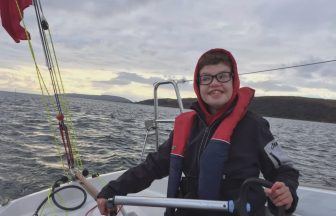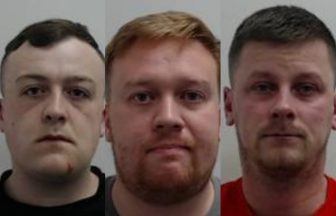A Bill that would see most 16 and 17-year-olds in Scotland referred to the children’s hearing system could help address underlying issues and stop young people from reoffending, according to a new report.
A Holyrood committee has given its backing to the new legislation but has insisted the Scottish Government provide more details on the costs ahead of a key Holyrood vote.
MSPs on the Education, Children and Young People Committee also voiced concerns that the legislation may not comply with “age-appropriate justice provisions” set out in the United Nations Convention on the Rights of the Child (UNCRC)
The committee raised the issues after scrutinising proposals from the Scottish Government which, if passed, would mean most under-18s accused of committing an offence would be dealt with by the Children’s Hearing system, rather than through the courts.
In a report on the Children (Care and Justice) (Scotland) Bill, the committee found having cases dealt with by the Children’s Hearing system would allow for “more age and stage appropriate, welfare-based, and comprehensive support” to be provided to youngsters.
What is a children’s hearing?
A children’s hearing is a legal tribunal that decides what’s best for a child who has a problem, such as not being looked after properly, or if they have been in trouble with the police or at school.
At present, the system primarily aims to help children and young people under 16.
But the proposed Bill changes the definition of “child” in the children’s hearings system from someone under 16 to someone under 18.
The United Nations Convention on the Rights of Children (UNCRC) says that all people under age 18 are children, and the Bill was created to promote the aims of The Promise Scotland – the body responsible for ensuring the Scottish Government’s promise to care experienced young people is kept.
Another key aspect of the Bill makes changes to criminal procedure in relation to children, including the kind of accommodation and safeguarding that is used – including stopping children under 18 from going to a young offenders institution (YOI) or prison.
It also makes changes relating to the regulation of secure accommodation and how it is used, while the fourth part of the Bill is about antisocial behaviour orders, named persons and child’s plans.
‘Improvements are needed before the Bill becomes law’
Sue Webber, convener of the education, children and young people committee, said: “We welcome the changes in this Bill that will ensure that 16 and 17-year-olds would have access to the children’s hearing system.
“As we heard time and again, where a child has committed an offence its important to consider why this has happened and we believe, if properly resourced, this Bill will help.
“It will protect children from harm and help find solutions to the problems that may have led to them offending in the first place. But improvements are needed before the Bill becomes law. We are alarmed that referral to the children’s hearing system seems to have an effective cut-off at 17.5 years old.
“This cut-off seems to be based on the length of time it might take for a case to be processed. We want the Scottish Government to address the delays the system appears to face and ensure that support is provided up to 18 years old, as was intended.”
Holyrood’s education, children and young people committee published a report that found the proposed changes could help address underlying issues and stop young people from reoffending.
Stakeholders told the committee they were broadly in favour of the changes the bill would introduce.
But the committee is urging the Scottish Government to help Children’s Hearings Scotland to recruit and train more staff, as raising the age at which a young person can be referred will lead to more referrals to the children’s hearings system.
The Bill will still allow for a young person’s offending to be handled by the adult justice system for the most serious crimes and where it is assessed to be in the public interest to prosecute.
There was strong support from witnesses, including Gerry Michie, governor of Polmont, and Sue Brookes of the Scottish Prisons Service, who told the committee that 16 and 17-year-olds, as children, “should not be with us”.
Mary Glasgow, chief executive of the charity Children 1st, said: “These changes present real opportunity to improve the children and families’ experience of care and justice.
“However, children and families often share real frustration with us because of the fractured care and support landscape in Scotland.
“Without careful planning in and around this Bill, there is a real risk of adding more fractures to an already disjointed system.
“We strongly encourage those considering the bill to think about it in the whole context, and from the perspective of the children and families who should be at the heart of these policy ambitions.”
Follow STV News on WhatsApp
Scan the QR code on your mobile device for all the latest news from around the country






















